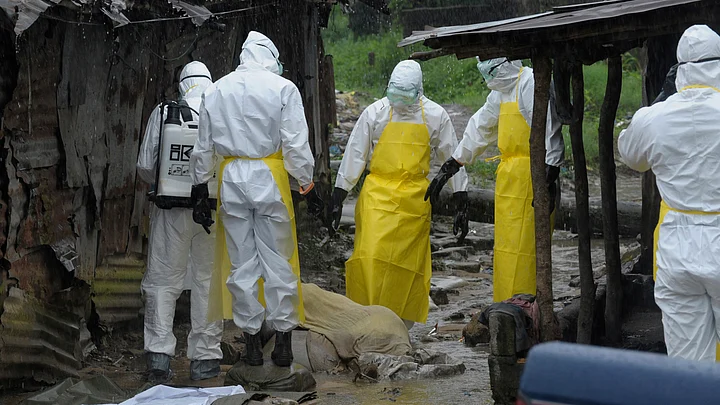Democratic Republic of Congo faces a ‘very high’ public health risk from Ebola because the disease has been confirmed in a patient in a big city, the World Health Organization (WHO) said on 18 May, raising its assessment from ‘high’ previously.
The risk to countries in the region was now ‘high’, raised from ‘moderate’, but the global risk remained ‘low’, the WHO said.
The reassessment came after the first confirmed case in Mbandaka, a city of around 1.5 million in the northwest. Previous reports of the disease had all been in remote areas where Ebola might spread be more easily contained.
“The confirmed case in Mbandaka, a large urban centre located on major national and international river, road and domestic air routes, increases the risk of spread within the Democratic Republic of the Congo and to neighbouring countries,” the WHO said.
WHO Deputy Director-General for Emergency Preparedness and Response Peter Salama had told reporters on Thursday that the risk assessment was being reviewed.
The WHO will also convene an Emergency Committee of experts to advise on the international response to the outbreak, and decide whether it constitutes a ‘public health emergency of international concern’.
The nightmare scenario is an outbreak in Kinshasa, a crowded city where millions live in unsanitary slums not connected to a sewer system. Earlier, on 8 May, at least 17 people had died in an area of northwestern Democratic Republic of Congo where health officials had confirmed an outbreak of Ebola.
It was the 9th time that Ebola had been recorded in the central African nation, whose eastern Ebola river gave the deadly virus its name when it was discovered there in the 1970s.
The outbreak had come less than a year after the previous outbreak which killed eight people.
Our country is facing another epidemic of the Ebola virus, which constitutes an international public health emergency. We still dispose of the well trained human resources that were able to rapidly control previous epidemics.Statement by the Health Ministry
Before the outbreak was confirmed, local health officials reported 21 patients showing signs of hemorrhagic fever around the village of Ikoko Impenge, near the town of Bikoro. 17 of them later died.
What is Ebola?
Ebola is caused by a virus which causes severe and fatal internal bleeding in humans, often leading to death. As per WHO, the average fatality rate of ebola is 50%.
Ebola is believed to be spread over long distances by bats, which can host the virus without dying, as it infects other animals it shares trees with such as monkeys. It often spreads to humans via infected bushmeat.
The initial symptoms of the infection could be:
- sudden fever
- fatigue
- headache
- severe muscle pain
These are followed by vomiting, diarrhoea, symptoms of kidney and liver failure and bleeding (internal or external).
Currently, there is no proven cure for this disease but certain symptoms are treated with intravenous (IV) or oral fluids.
In 2014 in India, a 26-year old man’s semen sample had shown traced of the virus. The man, who was travelling from Liberia, was kept in isolation at the Airport Health Organisation Quarantine Centre in Delhi.
The worst Ebola epidemic in history ended in West Africa just two years ago after killing more than 11,300 people and infected some 28,600 as it rolled through Guinea, Sierra Leone and Liberia.
(With inputs from Reuters.)
(For more health news, follow FIT.)
(At The Quint, we question everything. Play an active role in shaping our journalism by becoming a member today.)
